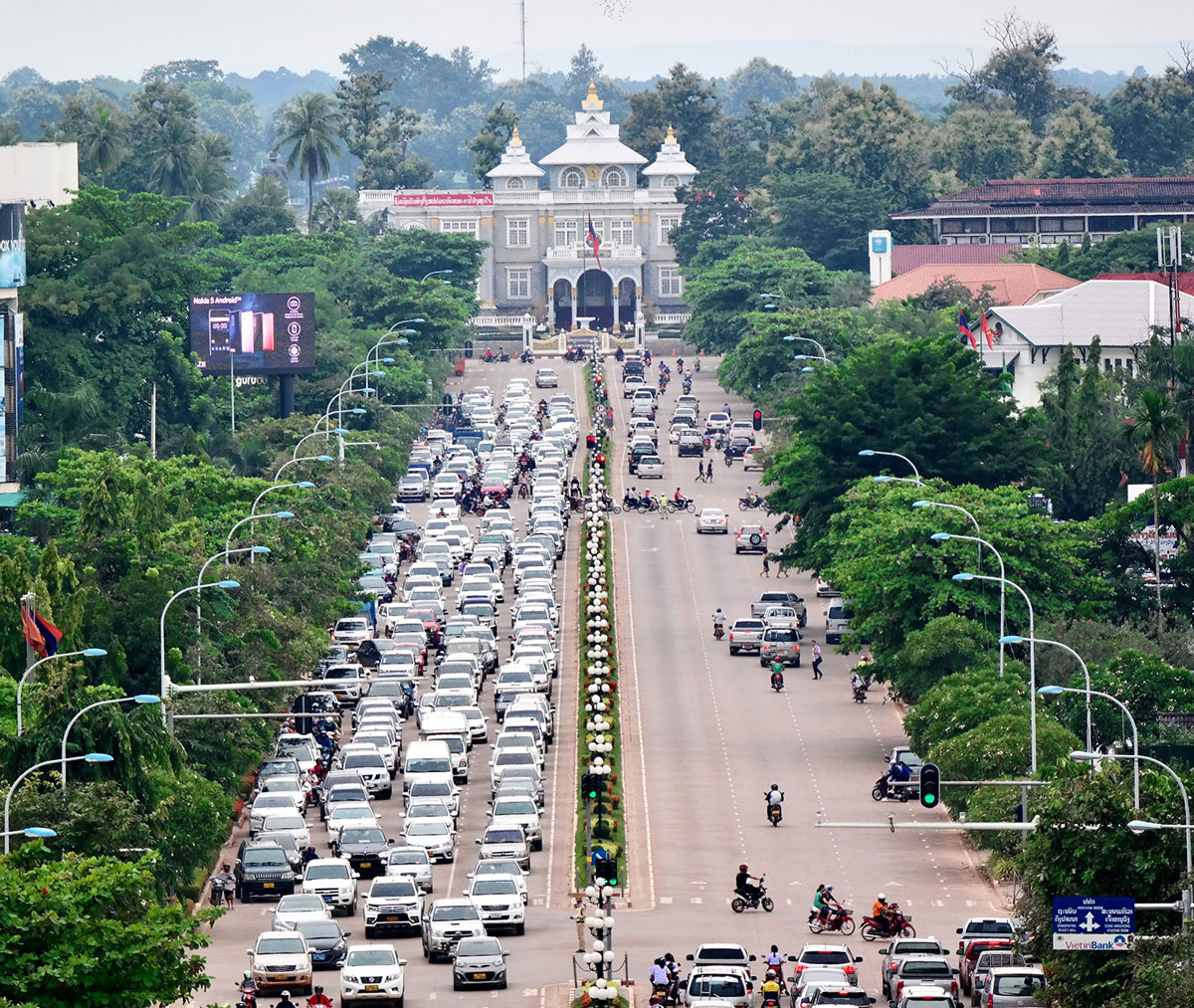Restoring wetlands and urban streams for better flood protection
We are working with government and academic organisations in Lao PDR to restore natural flood protection processes and build local capacity.
This project is supported by the Green Climate Fund through the United Nations Environment Programme, and delivered by the Ministry of Natural Resources and Environment (MONRE), the National University of Laos (NUoL) and Water Sensitive Cities Australia. This component is part of the larger GCF project on Building resilience of urban populations with ecosystem-based solutions in Lao PDR.
Background
Climate change is increasing the frequency and intensity of extreme rainfall events in Laos, and where combined with watershed pressures, is leading to more frequent and severe flooding in vulnerable cities along the Mekong River. To address the challenge, Lao PDR needs integrated climate-resilient integrated flood management system (ICFMS).
Currently, several barriers prevent implementation of ICFMS including: limited technical and institutional capacity in government; lack of integrated, climate-resilient approaches to flood management; and limited knowledge about ecosystem-based adaptation (EbA) and valuing ecosystem services.
To address these barriers, an established program – Building Resilience of Urban Populations with Ecosystem-Based Solutions in Lao PDR – aims to shift urban flood management from a limited, hard infrastructure approach towards an integrated approach that enhances climate resilience. This will be achieved by mainstreaming integrated flood management strategies into planning frameworks and implementing urban EbA to decrease climate-induced flooding.
What we’re doing
Our work with the Lao Ministry of Natural Resources and Environment and the National University of Laos has 2 objectives:
- Prepare EbA guidelines for wetland and urban stream restoration and management
An EbA guideline for wetland and urban stream restoration and management is important for local government to implement and monitor restoration interventions. The guideline will cover appropriate techniques and steps for identifying restoration areas, enhancing and restoring natural aquatic vegetation and vegetation on banks and the riparian zones, removing invasive plant species, removing solid waste that impedes flow and delineating stream buffer zones and install signage, as well as establishing effective processes of waste management.
The key activities of fulfilling this activity are:
- Review the existing EbA guidelines based on the best international practices
- Support NUoL to prepare the template and structure of the guidelines
- Support NUoL to carry out structured consultation on the draft EbA guidelines
- Support NUoL to complete EbA guidelines for wetland and urban stream restoration incorporating Lao context and experience.
- Conduct joint research on relevant topics
The key activities of fulfilling this objective are:
- Assess the existing research program and strengths
- Identify opportunities to integrate research with other tasks
- Jointly develop research proposals identifying and outlining potential research areas, objectives, mechanism, potential partner organisations and research themes.
- Provide a roadmap to develop a knowledge hub for joint research on EbA
How it will help
The outcomes from the project include the following:
- Stronger institutional and academic capacity for integrated flood risk management and implementation of urban EbA
- Increased awareness of climate threats, and appropriate adaptation responses to ensure resilient urban areas and healthy wetlands and streams.
- Guidelines developed with insights from project level interventions in Vientiane, Paksan, Savannakhet and Pakse.
What does a Water Sensitive City look like?
The CRCWSC has produced research, guidelines and
tools related to the following topics:
Integrated Urban Flood
Management
Climate change
mitigation
Community
engagement
Economics and
business case

